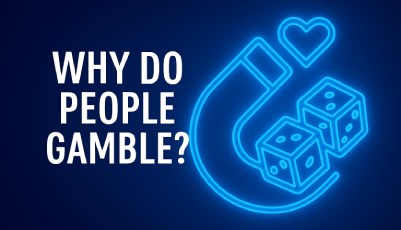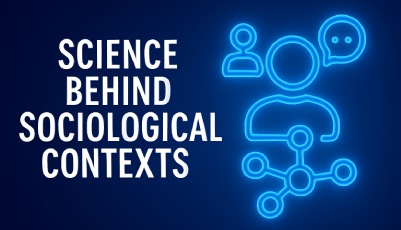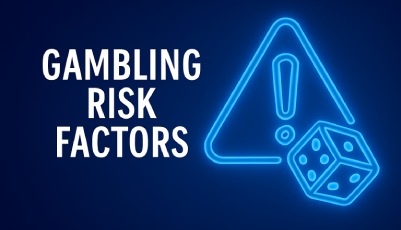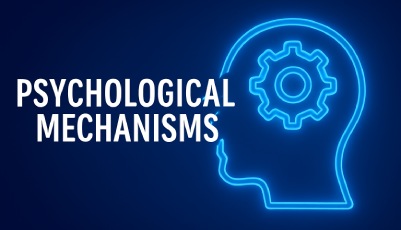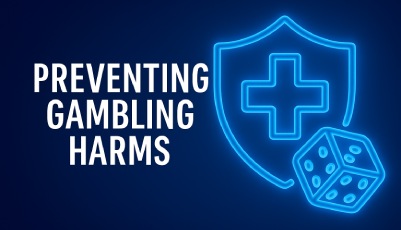Gambling disorders are not a single type of condition, they are often the amalgamation of personal traits, gambling behavioral patterns and are also impacted by social environments. Often, the intersection of those main underlying factors create what is academically accepted to be a gambling disorder, and there are varying extents to which a gambling disorder can harm an individual or lead towards pathological gambling addiction. In this review, we gathered research from peer reviewed case studies to analyze these criteria in depth. With a longitudinal clinic study, we will also highlight the major risk factors for gambling disorder.
Summary of Key Risk Domains

The Risk Factors for Gambling Disorder: A Systematic Review publication by Moreira et al. assembles the risk factors for gambling disorder into three main domains. The study concluded that these domains are the driving forces behind any gambling disorders, and that they are not mutually exclusive, there are interactions between the domains that can exacerbate disorders.
- Individual vulnerabilities
- Environmental exposure
- Behavioral context and clinical comorbidities
Individual vulnerabilities can stem from early exposure to gambling, but it can also be neurological, and related to heightened impulsivity in an individual. Environments that not only expose people to gambling, but encourage it too, is another multifaceted domain. From the accessibility of gambling to the social validation and peer networks that value gambling, the external aspects can have powerful influences on shaping an individual’s perception of gambling and risk taking.
“The accumulation of multiple risk factors increases both the likelihood and severity of gambling disorder.” – Moreira et al., 2023
At a deeper level, the behavioral context of gambling relate to the personal feelings and reasons people have to turn to gambling. Combined with clinical comorbidities such as mood disorders, anxiety or substance use, and the risk taking involved in gambling can be used as a vice for emotional regulation.
Impulsivity and Early Engagement

It is well documented that impulsivity is more prominent in adolescence, and that developing minds are more vulnerable to the intermittent reinforcement reward systems that are produced from gambling. For adolescents, especially those who are exposed to gambling early on, enhanced impulsivity can lead to gambling addiction and disorders more quickly.
Impulsivity repeatedly emerges as both a predisposing factor and a perpetuating mechanism for gambling problems. Starting gambling early, particularly in adolescence, further compounds risk: early initiators are more likely to show severe and long-lasting gambling trajectories.
“Early exposure combined with impulsive traits creates a developmental trajectory towards disordered gambling.” – Moreira et al., 2023
Those who are introduced to gambling after reaching maturity are not as likely to perpetuate mechanisms for gambling problems. While there are examples of this, the findings from Moreira et al. suggest that the people who either engaged with, or where exposed to, gambling at a younger age are more likely to suffer from reckless decision making and falling prey to common gambling fallacies.
Environmental and Social Exposure
The longitudinal study by Wirkus et al. also explored the environments and social norms of gambling, and how these environments normalize gambling for individuals. The extent of the exposure, and the social context it comes from, dictate the strength of this influence.
Social exposure is proven to alter an individual’s perception of risk, or how they manage the risks. In unhealthy contexts, the social normalization of gambling will downplay the risks of gambling, or amplify the illusion of control. Instead of blaming chance and accepting losses, the individual may blame their strategy or ability to beat the odds, perceiving gambling to be a venture that can be mastered, and the house can be beaten.
Mental Health and Dispositional Factors
A 2024 longitudinal study by Wirkus et al revealed that documented comorbidities are consistent with the severity of gambling disorders. Individuals diagnosed with depression, higher anxiety, stress, or substance use, are at a higher risk domain than those who are not. The maladies are not necessarily an effect of, or related to, gambling. The users can already have the mental health or substance use conditions prior to any gambling exposure.
These can later induce personality traits such as alexithymia and dissociation, which undermine the emotional regulation of gambling. Ultimately, the users could use the dopaminergic reward pathways that gambling offers to alleviate the pressures of their corresponding conditions, but they then enter a maladaptive coping system, in which an unhealthy solution to a problem worsens the problem and creates new ones.
Online Sports Bettors and Longitudinal Risk
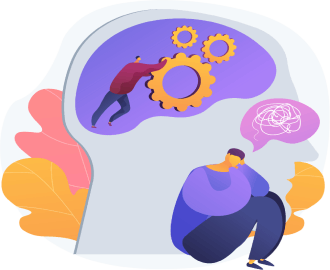
Another of the key highlights of the longitudinal research conducted by Wirkus et al., is the identifying predictors of DSM-5 gambling disorder. This is the condition in which consistent unhealthy gambling behaviors induce mental health conditions of their own. The recorded factors include:
- Difficulty in identifying emotions
- Dopaminergic regulation
- Feelings of perceived helplessness
- Lack of premeditation
- Elevated stress levels
When analyzing these symptoms in German online bettors for an extended period of time, the study found that lack of premeditation and perceived helplessness were the two major symptoms for diagnosing the DSM-5 gambling disorder.
“Longitudinally, impulsivity traits, perceived helplessness, and emotional identification difficulties predicted new onset of gambling disorder among online sports bettors.” – Wirkus et al., 2024
Comparative Analysis & Perspective
Understanding how gambling disorders work requires a knowledge of the domains, symptoms, and how they interact with each other. These perspectives analyze different aspects of gambling disorders, and we chose them to observe a broader image of how gambling disorders work. Prevention methods must take into account these player profiles, and look for individuals who are at greater risk of forming disorders. Mental health screening, easier access to gambling education, and a support system are vital in preventing gambling disorders.
FAQs
Impulsivity and poor emotional regulation, especially difficulties with premeditation and perceived helplessness, are among the strongest predictors.
Yes, initiating gambling in adolescence or early adulthood significantly increases both the likelihood and severity of future gambling disorder.
Depression, anxiety, and substance use disorders amplify risk by activating shared neurobiological pathways like reward dysregulation and impaired decision-making.
Yes, longitudinal data show that individual vulnerabilities, such as impulsivity or stress, interact with online sports betting behavior to escalate risk over time.
References
Individual risk factors and prediction of gambling disorder in online sports bettors Theresa Wirkus et al. (2024)
Risk Factors for Gambling Disorder: A Systematic Review Diana Moreira et al. (2023)
